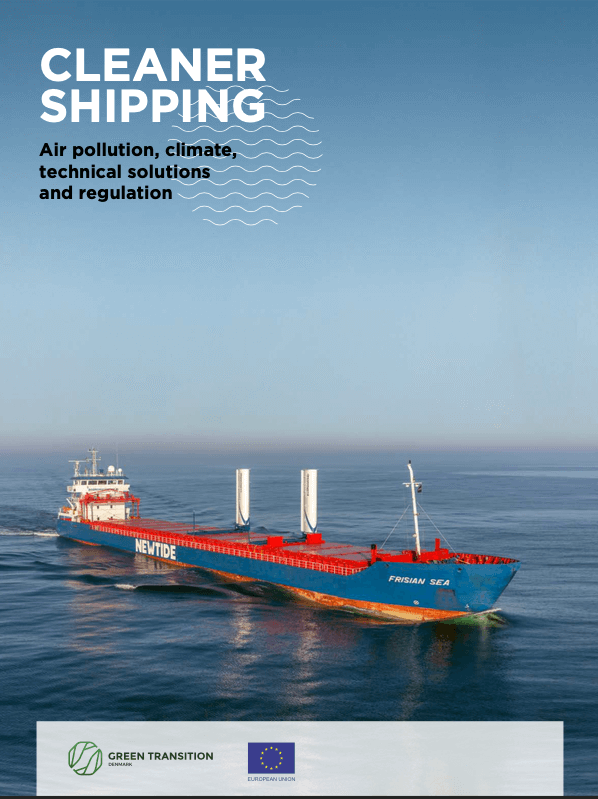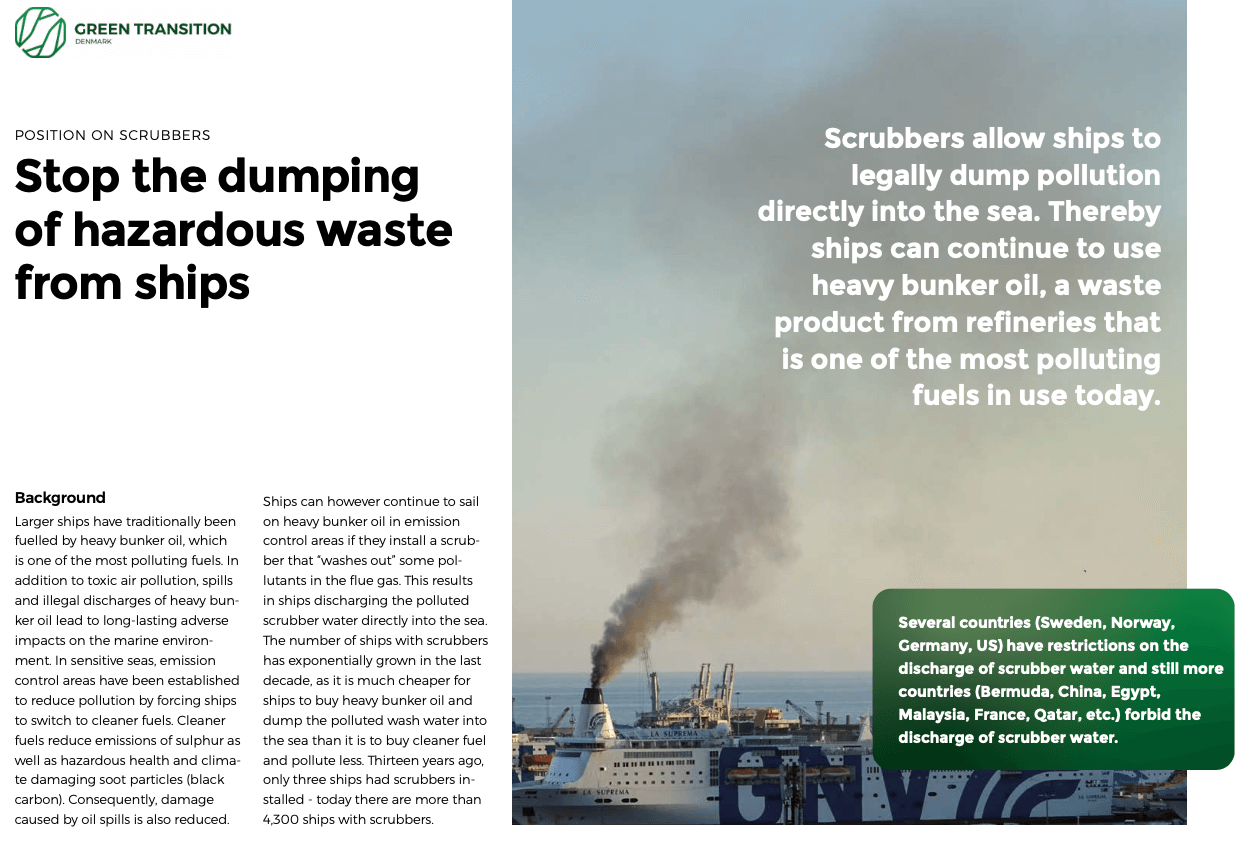Between 80% and 90% of global cargo is transported by ships. Shipping is thereby the basis of the still increasing global trade. However, the high transport share leads to around 7 million barrels of oil being combusted in ship engines every day – corresponding to 3-4 times the oil export of Kuwait in 2020 – thereby shipping contributes significantly to global warming.
Most ships use very low sulphur fuel oil (VLSFO) that contains around 0.5% sulphur. The phrase “very low” is quite misleading as it contains 500 times more sulphur than standard road diesel in EU (0.001% sulphur). Even in sulphur emission control areas (SECAs) in densely populated regions that has the strictest regulation of shipping, ship fuels contain and emit 100 times more sulphur per litre than road diesel.
Complete combustion in ship engines oxidizes all carbon and sulphur in the fuel into CO2 and sulphur oxides, the latter mainly as sulphur dioxide (SO2). At the same time, free nitrogen (N2) in the air is oxidized
to nitrogen oxides (NOx) inside the engine. However, complete combustion does not occur. Hence, the flue gas also contains polycyclic aromatic hydrocarbons, volatile organic compounds, particulate matter, black carbon, etc. Emissions of SO2 increase with the sulphur content in the fuel whereas a high content of aromatics in the fuel seems to increase the black carbon formation.
The most important pollutants in relation to negative health effects are SO2, NOx and fine particles (PM2.5) as these pollutants have a long lifetime and thereby significantly increase air pollution and exposure on land. However, ultrafine particles (PM0.1) and black carbon from ships in ports can cause health problems for port workers and significant local air pollution. This is especially the case when cruise ships use their engines for energy generation during long port calls in city centres. CO2 and black carbon (and methane from methane fuelled ships) are the most important climate pollutants.
The main difference between shipping and road transport is that road fuel is much cleaner and that vehicles have efficient flue gas cleaning systems in most of the world. No comparable regulations apply to shipping. However, in the recent years the International Maritime Organization (IMO) has adopted regulation that will reduce emissions.
This publication focuses on air pollution with CO2, SO2, NOx and particles from shipping, technical solutions as well as existing and further regulation and enforcement. The purpose is to inform and inspire decision makers and other stake- holders to implement ambitious regulation to reduce air pollution from shipping to the benefit of the climate, public health and nature. Finally, this publication can be used for teaching.
Download pdf: Cleaner Shipping: Air Pollution, Climate, Technical Solutions and Regulation



